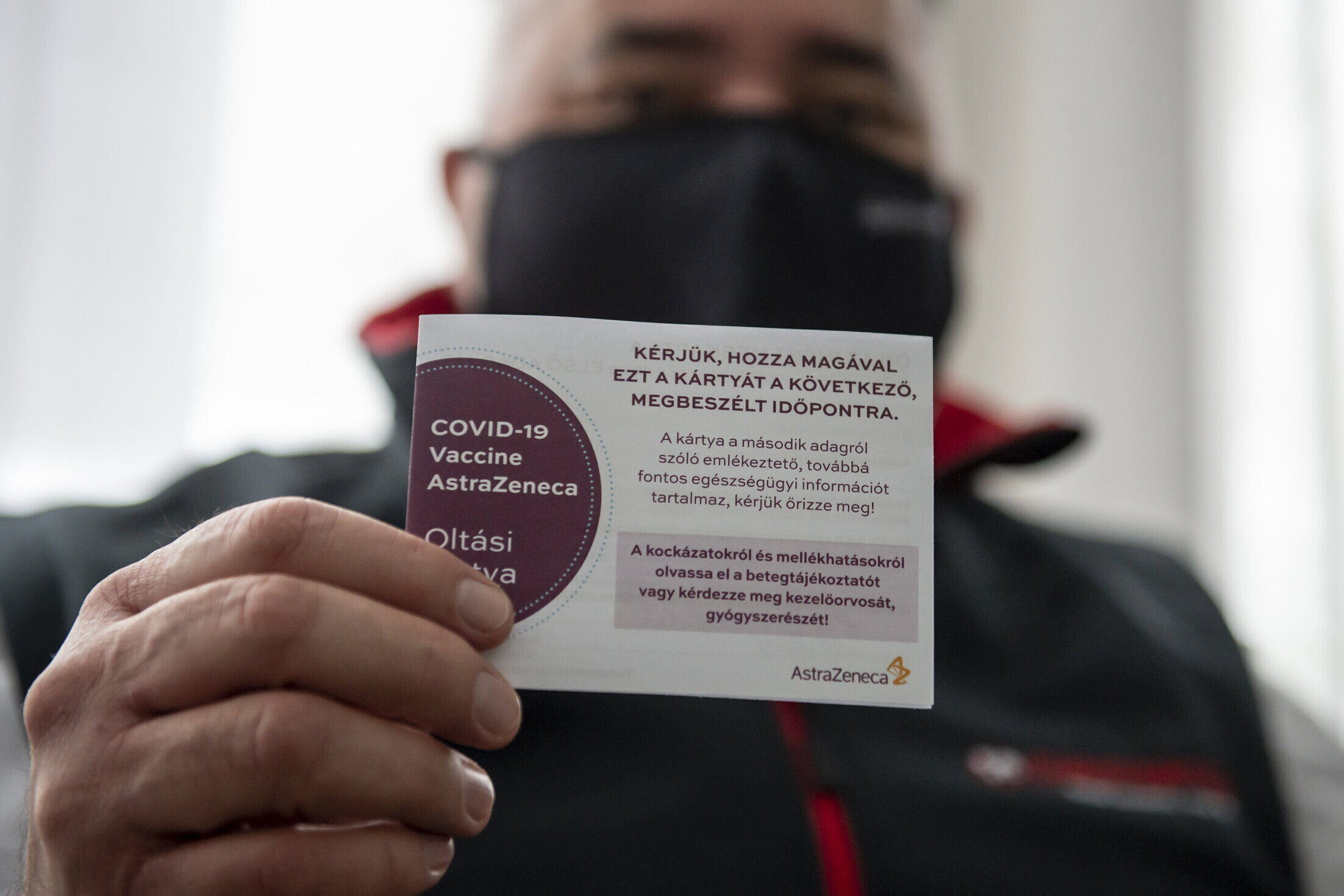Dispute over vaccine certificate intensifies in Hungary

Hungarians are divided into two groups by the issue of vaccine passports. Some support the introduction of the new card while others are opposed to it. There are big differences in attitude based on age, place of residence, and educational levels according to the result of the joint research of Pulzus Kutató and Napi.hu.
The government has decided that the Hungarian state would introduce a document certifying protection against the virus, which can be obtained by those who have been vaccinated against the coronavirus or have proven to have contracted the disease, Gergely Gulyás, the leader of the Prime Minister’s Office, announced last Thursday. The new official document is for those who have already received the second vaccination against the coronavirus. In this case, the document will not include a period of validity but will record the date of administration of the vaccine, as there is no precise information yet about the effectiveness given by each vaccine, writes Napi.hu.
By the 17th of February, almost 350 thousand people had been vaccinated in Hungary, of which about 135 thousand have received the second vaccination. That means that 135 thousand people could get the new plastic card, which could provide different exemptions.
Based on the vaccination schedule,
healthcare workers will be vaccinated first, followed by elderly and chronic patients.
The use of vaccination certificates as an official document is a divisive issue: according to the Hungarian Civil Liberties Union (TASZ), in general, the proposed certificate has legitimacy to be made and used. However, an important question is whether someone who is unable to get the vaccine through no fault of their own will be discriminated against. Hungary is not alone with this delicate issue, as several EU member states are considering creating a similar card. In addition, many companies, including hotels and airlines, are experimenting with a certificate.
For this reason, Napi.hu and Pulzus Kutató conducted joint representative research to find out the support for such an initiative in Hungary. Based on the result,
33 per cent of people support the creation of the new license, while 35 per cent are opposed to it.
19 per cent of respondents say it can be introduced gradually, and 13 per cent think it may be necessary later, but now it is too early to decide on this. There is no big difference in terms of gender; men support it in a slightly higher proportion (36-30 per cent). However, larger differences can be observed based on age.
43 per cent of the elderly support the vaccination card, while only 21 per cent of people aged between 18-39 give the same support.
This can be explained by the fact that older people get vaccinated sooner while young people are among the last groups. The most opposing group is the middle-aged, with 39 per cent saying there is no need for such a document at all.
There is a great deal of division even if we examine the attitude of the population on the basis of education. 40 per cent of those with primary education, 25 per cent of those with secondary education, and 24 per cent of those with tertiary education support the creation of the card.
It is also interesting that people living in county seats dislike the most the idea of a vaccine passport: 51 per cent think that this is unnecessary. Residents of villages are the most supportive of the proposal, with 38 per cent. City dwellers (36 per cent) and Budapest residents (31 per cent) only slightly lag behind.
- Hungarian vaccine certificate to come, here’s why you will need one
- Hungary to introduce a digital vaccine certificate from March?
Source: napi.hu


I would support the initiative to have s certificate to travel and attend events, etc. , however, at this time, I am unable to get the vaccines although I have tried asking my physician here because I only have a residence permit even though I would be eligible if I were Hungarian. So….what would people like myself do?